Expectations and realities
Resolution No. 71-NQ/TW of the Politburo on breakthroughs in education and training development. One of the important contents of the Resolution is to strengthen foreign language teaching, gradually making English the second language in schools.
At the same time, improve English standards for teachers and students at all levels; ensure sufficient quantity and qualifications of teachers, facilities and technology, strongly apply artificial intelligence in teaching and learning English; increase teaching of subjects in English in places with conditions.
In Phu Tho province, school officials and teachers shared about the opportunities, challenges and requirements when implementing this policy.
Ms. Nguyen Thi Thai - Principal of Tho Son Secondary School (Thanh Mieu Ward, Phu Tho Province) commented: Resolution No. 71-NQ/TW is a correct policy with long-term strategic significance.
If implemented synchronously, resolutely and with a suitable roadmap, students' foreign language proficiency will certainly improve significantly, meeting the demand for high-quality human resources in the integration period.
However, according to Ms. Nguyen Thi Thai - Principal of Tho Son Secondary School, the school is still facing many difficulties: the English teaching staff is still lacking, their qualifications are not uniform; the facilities and equipment for teaching foreign languages are not complete and synchronous;
Some teachers are still confused in organizing practical communication activities, especially listening and speaking skills for students. In addition, the rich foreign language learning environment outside of regular school hours is limited.
Sharing the same view, Ms. Ngo Thi Nhu Lan - Principal of Huong Canh A Primary School (Binh Nguyen Commune, Phu Tho Province) said that this is a breakthrough, strategic policy and in line with the country's development trend.
Aiming to gradually improve the quality of foreign language learning in high schools, helping students have foreign language skills approaching those of countries in the region and be confident in an international learning environment.
But, at present, the school does not have enough English classrooms, the number of teachers is sufficient, most of them have met the new requirements in improving foreign language skills for students.
The biggest difficulty is that the number of students in a class is much larger than that of a standard foreign language class; at the same time, the foreign language teaching staff is old, making it more difficult to apply digital transformation and artificial intelligence to professional work.
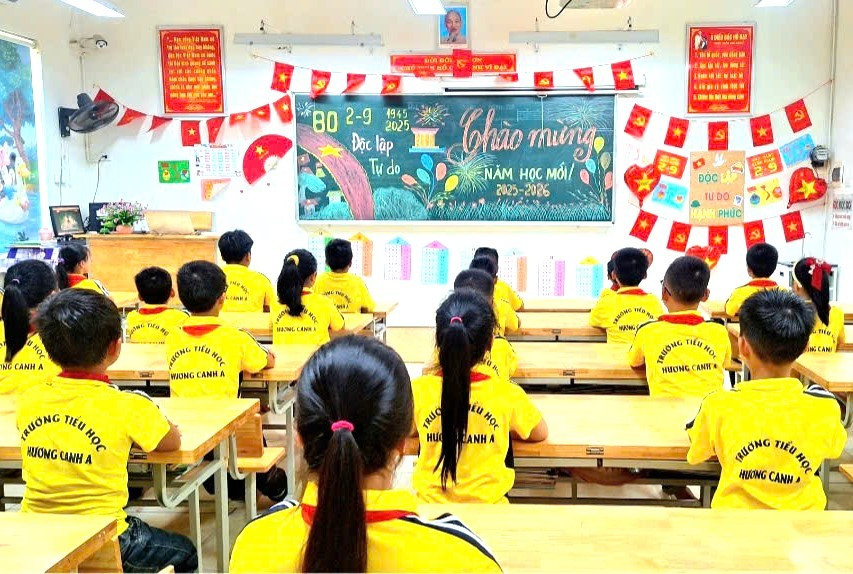
Synchronized solutions to improve foreign language proficiency
Ms. Ngo Thi Nhu Lan - Principal of Huong Canh A Primary School emphasized: Implementing Resolution No. 71-NQ/TW, the school will synchronously deploy many solutions to improve the quality of English teaching such as: Training on the use of technology applications, artificial intelligence for teachers to design lessons, create test questions to assess capacity...
Organize training for teachers on digital transformation in teaching and coordinate with parents to improve the cooperation between teachers and parents in guiding and tutoring students to study at home when students do not have enough time to understand deeply and clearly in class.
From the perspective of classroom teachers, according to Ms. Tran Thi Thanh Nga - English teacher of Tho Son Secondary School, teachers need to proactively innovate, participate in training courses, apply digital technology and artificial intelligence to prepare lectures and assign lessons online, helping students develop the habit of self-study. At the same time, teachers need to guide students to exploit authentic documents, practice communication through games and real-life situations in the classroom.
Another issue is testing and assessing students' English proficiency. Ms. Tran Thi Thanh Nga said: Currently, testing speaking and listening skills is difficult due to large class sizes, limited time and uneven equipment quality. Meanwhile, reading, writing and grammar skills require a lot of practice time, but in class, teachers often only have time to teach theory.
To overcome this, Ms. Tran Thi Thanh Nga suggested that it is necessary to build an open and public question bank to help students practice regularly. At the same time, the Ministry of Education and Training needs to develop a self-study website, providing free question banks and practice exercises for both teachers and students.

Ms. Nguyen Thi Thu Phuong - English teacher at Huong Canh A Primary School believes that teachers need to innovate teaching and assessment methods so that students can use English effectively, instead of studying just for exams.
The teaching method is student-centered. Teachers only play the role of organizers, monitors, helpers and evaluators. Students actively approach, exploit, use language and evaluate their peers under the guidance of teachers. This creates many opportunities for students to use language in class while forming and developing competencies and qualities according to the 2018 General Education Program.
Along with that, student assessment methods need to create motivation and support by finding out the areas that students are not good at so that teachers can have timely support measures for students.
However, there needs to be synchronization in regular and periodic assessments and test scores to be effective because when test scores are still heavily academic, it is very difficult for teachers to both teach students foreign language skills and do well on academic tests.
Practice at schools shows that, to effectively implement Resolution No. 71-NQ/TW, it requires the synchronous participation of all levels and sectors: supplementing staff, training teachers; investing in standard facilities and equipment; and building a rich foreign language learning environment.
Source: https://giaoducthoidai.vn/ky-vong-doi-moi-day-va-hoc-tieng-anh-tai-phu-tho-post749142.html





![[Photo] General Secretary To Lam attends the 1st Congress of the Central Party Committee of the Fatherland Front and Central Mass Organizations](https://vphoto.vietnam.vn/thumb/1200x675/vietnam/resource/IMAGE/2025/9/23/2aa63d072cab4105a113d4fc0c68a839)






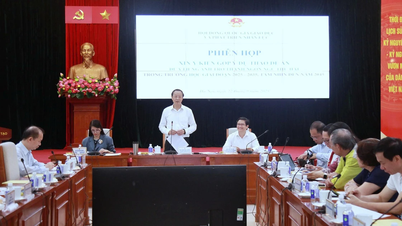
















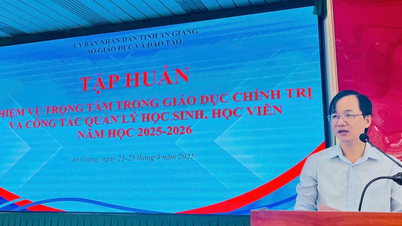
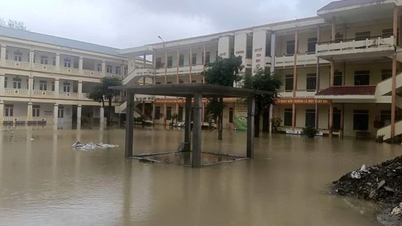

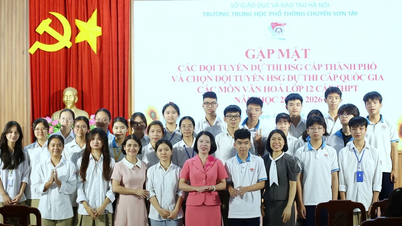
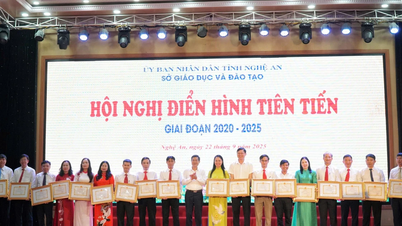
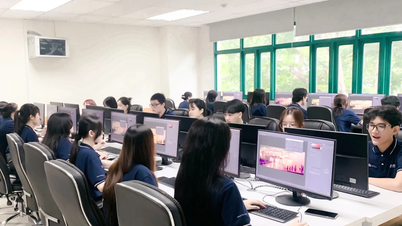
![[Photo] Prime Minister Pham Minh Chinh chairs the first meeting of the Central Steering Committee on housing policy and real estate market](https://vphoto.vietnam.vn/thumb/1200x675/vietnam/resource/IMAGE/2025/9/22/c0f42b88c6284975b4bcfcf5b17656e7)
































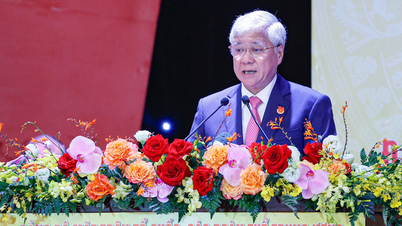




























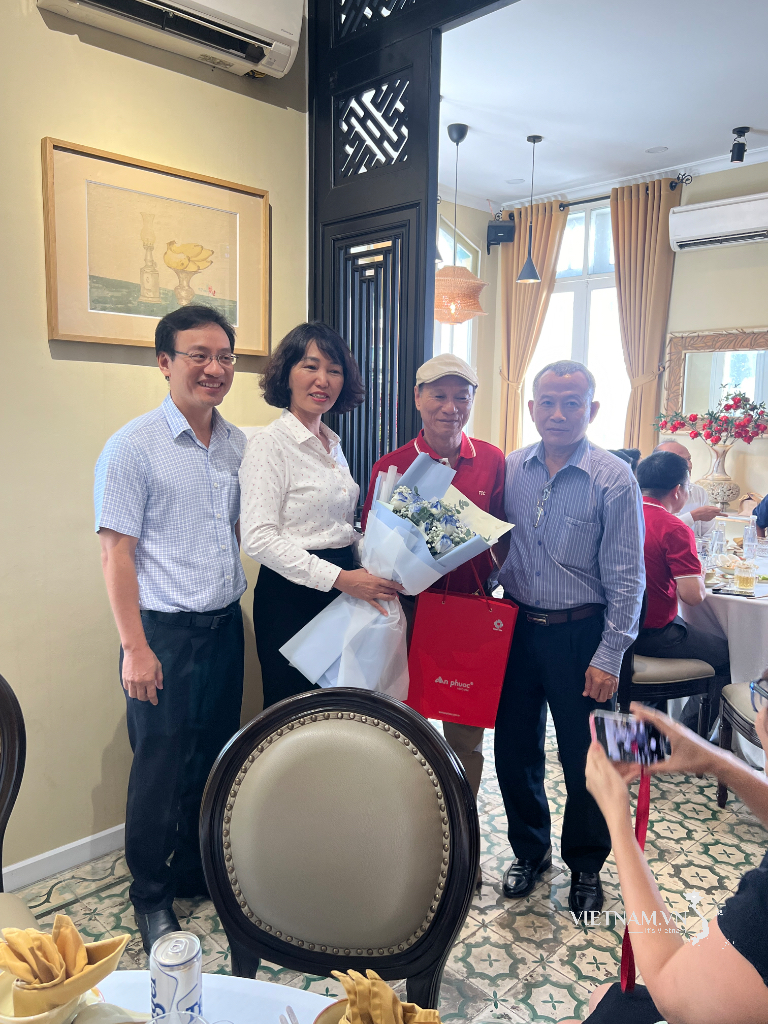


Comment (0)